Federal Criminal Defense in North Dakota & Minnesota
Federal criminal charges are some of the most serious charges anyone can face. Many carry mandatory minimum sentences and longer prison time than similar state-level charges.
Convictions can mean years, if not decades, in prison; significant fines and penalties; and a criminal record that takes a lifetime to overcome. The government also has virtually limitless resources, including highly-trained agents, prosecutors, and staff who work together in pursuit of convictions.
Given this, if you or a loved one is under federal investigation in North Dakota or Minnesota or has been charged with a federal crime in either state, it's imperative that you hire an attorney that is specifically experienced in defending federal crimes.
Dane DeKrey, the firm’s co-founder, is a former Assistant Federal Public Defender, meaning he handled hundreds of federal criminal cases across North Dakota. He has even trained other criminal defense attorneys in federal criminal procedure. He’s extremely knowledgeable in federal sentencing guidelines, motion and detention hearings, and legal briefing in the federal system.
Federal Practice Areas
-
Possession of a controlled substance
Possession with intent to distribute
Distribution of a controlled substance
Manufacturing controlled substances
Trafficking controlled substances
Importing/exporting controlled substances
-
Felon in possession of a firearm
Unlawful possession of a firearm
Unlawful sale or transfer of a firearm
Unlawful possession of a firearm in a prohibited area
§ 924(c) offenses
-
Entering the United States illegally
Illegal re-entry
Failure to depart the United States
-
Mail fraud
Wire fraud
Bank fraud
Healthcare fraud
Mortgage fraud
Tax fraud
Identity fraud
-
-
Arson
Vandalism
Theft/damage of government property
-
Federal law gives the federal government exclusive jurisdiction over most crimes committed in Indian country — learn more.
-
The federal criminal code is so large, there are often cases that fall outside these “normal” categories. If your case doesn’t fit neatly into a category above, call us at 218-284-0484 to discuss.
What to do If you’re charged with a federal crime
Criminal charges brought by the United States government are known as “federal criminal charges” or “federal charges.” Most of these cases are prosecuted by the United States Attorney’s Office.
Federal crimes differ from state crimes in many ways, but they are generally more serious and carry much harsher penalties. This is due to something called the United States Sentencing Guidelines.
At the federal level, sentencing is determined under a complex set of guidelines theoretically designed to ensure uniformity and consistency in sentencing decisions across the country. The guidelines take into account factors such as criminal history and seriousness of the offense to determine a recommended sentencing range. These guidelines have been criticized by judges, defense attorneys (including those at our firm), and even former federal prosecutors as overly harsh and inflexible, but they still remain in place and control.
Most individuals charged in the federal system will qualify for a public defender or court-appointed attorney through the “CJA“ system. Attorneys at Ringstrom DeKrey participate in the CJA program, so there is a chance one of our attorneys may be assigned to your case.
However, if you wish to retain a private attorney to fight your federal criminal charge, contact us right away. The sooner we get involved, the better chance we have to help you achieve the best possible outcome.
Things To know about federal criminal charges
-
Many federal criminal defense attorneys advertising on Google are not located in the North Dakota or Minnesota area. Usually, attorneys only have to be barred in a single federal court, meaning out-of-state attorneys may claim they have the experience to take your case. Don’t believe them.
Almost always, it’s impossible for them to provide a vigorous defense, as there are many in-person hearings and potential discovery stipulations that require in-person consultations. For these reasons and others, we strongly recommend hiring an attorney within driving distance of the state you are charged in.
-
In order to indict an individual, federal prosecutors must present evidence to a grand jury that the person likely committed the offense.
The function of the grand jury is to evaluate if there is “probable cause” for criminal charges. The grand jury does not determine if you are guilty, only that there is enough evidence to charge you with a crime.
Your normal 6th Amendment right to an attorney is not applicable during grand jury proceedings. They are normally held in secret and do not include judges or defense lawyers.
-
Depending on the circumstances of your case, the government may ask that you stay in jail until you are either sentenced or found not guilty. This is almost always true in cases involving drugs.
In federal drug cases, the burden shifts where detention (staying in jail) is assumed. It is your attorney’s job to convince the judge to release you while your case works its way through the court system.
Attorneys at Ringstrom DeKrey have successfully won many detention hearings and would fight equally hard in your case.
-
In every criminal case, the government must disclose all the alleged evidence (also known as discovery) against you. They government may, however, put conditions on the materials where you cannot be left alone with the discovery. This is called stipulated discovery.
In order to review stipulated discovery, your attorney must be present with you. This is why having a local attorney is so important.

